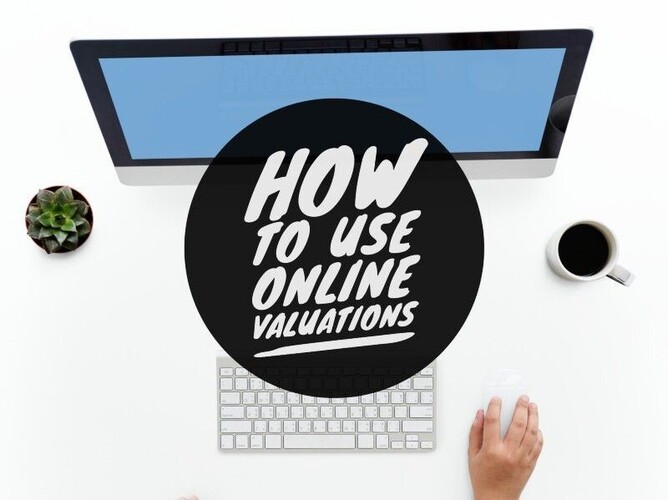Online valuation websites have been a game-changer for real estate, providing buyers and homeowners with easy access to quality information that can help them make informed real estate decisions.
As an owner, online valuation websites allow you to keep track of the value of your property, allowing you to spend lots of fun hours watching the value (hopefully) increase, pondering how smart you were to buy when you did, and what else you might do with the money if you decided to sell.
When the time does come to sell, it’s important to understand how these sites work, including the limitations of their estimates and how they affect your sale process. In this guide, we’ll run you through some common traps to watch out for and provide tips to help you make the best use of your online estimate.
Tip 1. Your online value estimate is just one data point
Keep in mind the limitation of these online tools: nobody has visited your property. The algorithm generating your estimate has no idea of the condition of your home, what repairs are required, how much afternoon sun it gets in the living area or how well established your property is.
Use it as a starting point but do further research by getting an up-to-date market appraisal from an experienced real estate professional who specialises in your area. We provide this service at no expense to local owners – get in touch with us today to book your free appraisal.
Note: You could also invest in a valuation report from a registered valuer. The more information you have, the better armed you are to make smart property decisions.
Tip 2. If you want the best price, test the market
We have seen owners sell privately for more than their online value estimate, thinking they were getting a good deal, only to later realise that the estimate was too low and they could have achieved a higher price on the open market.
Testing the market may involve a bit more work getting your property ready for photos and viewings, but it’s worth the effort. Selling a property is a chance to maximise your net worth that doesn’t come around all that often.
Tip 3. Don’t become fixated on the number
Conversely, there may be situations where the online estimate website sets a value that is unrealistically high on your property. It’s important to be open to market feedback, otherwise, you could end up waiting forever for a sale.
Remember, that website isn’t offering to buy your home. The most accurate value guide is always written offers on paper from willing buyers. If you have fully tested the market, and multiple active buyers think your property is worth less than its online estimate, then it’s worth listening to that feedback.
Tip 4. Understand buyers may rely on the estimate
You need a marketing strategy that takes your online estimate into account. If your online estimate is too low, then your chosen real estate professional will need to present evidence to convince buyers they should pay more than the online sites are saying they should.
If your online estimate is too high, you run the risk that key buyers won’t bother offering on your home if they think they can’t afford it. You’ll need to put a marketing strategy in place that overcomes this and gets the right buyers to take action, without limiting your final result.
Tip 5. See if you can request a review
Some online valuation websites will review their estimates by request. You can try contacting the website directly with an explanation of why your think their data is wrong, or talk to us about your options. We can provide you with supporting evidence that might help, like up-to-date recent comparable sales reports with photos.
The key message here is that when it comes time to sell, it pays to have an expert you can call on for strategic advice. Someone who has seen your home in person, who knows your local market and can help you work out a plan to get the best possible outcome. Online estimate websites are incredibly useful, but they are just one small piece of the real estate puzzle.


